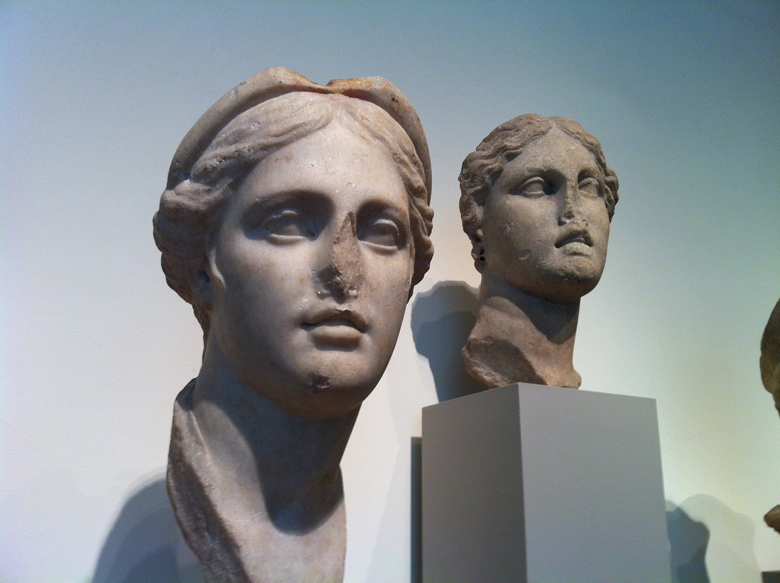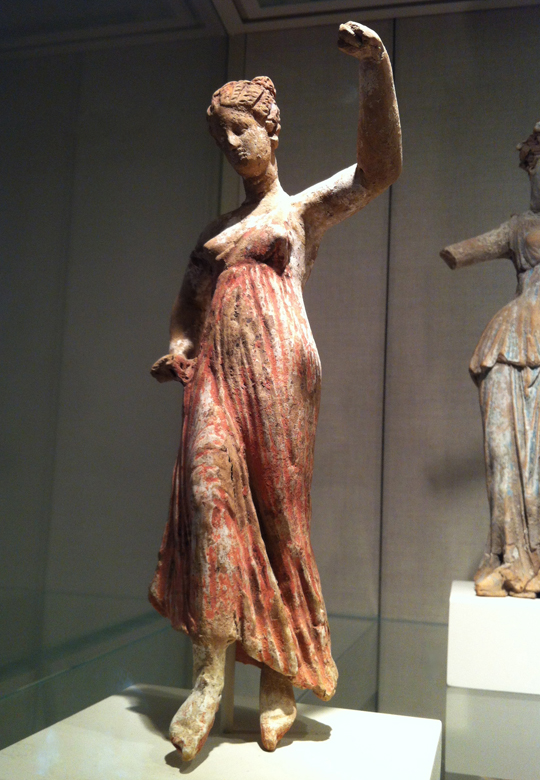CII
Hidden master strokes his long, white (invisible) beard
Abdomen ship!
Violence is currency carried on by other means
The knot just thinks he is a piece of string
’69 – ’71 squeeze the baby from
Yinyang
Cunnilingus-fellatio
Fellatio-fellatio
Cunni-cunni
If sixty-nine turned out to be sixty-nine…
Ten centimeters and nineteen-seventy-one
Dilated lock and load
Mr. Nixon, Mr. Zhou; Mr. Zhou, Mr. Nixon…
Evolution cannot be televised
When does the pickup become the put-down?
Nixon’s army, Mitchell’s law
Ain’t no match for peoples war…
And who killed the miners?
You tell me it’s the institution, well…
You can’t always get what U Thant…
Attica means fight back!
Bads and surfaces. Property wrongs.
Wicker thought again that there was little evidence of black-white antagonisms in D-yard in what the observers could see and hear. When the black orators… spoke of unity in the yard, but coupled this with blasts against “The Man” or “Whitey,” white inmates seemed to be cheering with the rest. …Champ, Brother Herb [Herbert X Blyden] and Brother Richard [X Clark] all seemed to accept white inmates as legitimately part of the oppressed class.
Could he be seeing in D-yard, Wicker wondered, that class interest might overcome racial animosities? Was it possible that the dregs of the earth, in a citadel of the damned, somehow in the desperation of human need had cast aside all the ancient and encumbering trappings of racism to find in degradation the humanity they knew at last they shared? [Wicker, ATTD, pp. 238]
Degradation, Tom? Is the recognition of common humanity compatible with degradation?
Two four six eight
Organize to smash the state!
Champ said, “We got to have Rockefeller to save our lives and those of the hostages… I say his hostages because he created this situation.” [Wicker, ATTD, pp. 238]
Nor, he [Wicker] thought sadly, would many [of the public] question Rockefeller’s position that at some point recapturing and “reopening the institution” became more important than lives lost doing so. That was why it was hard for him to look Strollo, Wald, Cunningham, and the other hostages in the eye. He knew, if they did not, that they were expendable. [Wicker, ATTD, pp. 239]
Liberty cannot be provided for in the general sense if property be preserved. The main thing that I speak for is because I would have an eye to property. Said Henry Ireton, Cromwell’s right hand general and son-in-law, circa 1647.
c.f. and q.v. King Phillip’s War and the establishment of essentially English property rights in North America. And Puritans.
Squeeze the baby from the belly of nineteen seventy-one
Expendable, Tom, or simply spendable?
Men, we’ve got our orders. We’ve got to take that piece of real estate, whatever the cost…
I was born under a Vlad sign…
—“Vampire Blues” (traditional)
So much Hang Sengs the balance
Drama, for all its drama, is not very interesting. Or at any rate less interesting than the quotidian play of things. This is because drama, by being drama and only drama, is essentially one dimensional, univalent, and lacking in resonance. It needs always, because of its essential weakness, to add drama to itself in order to appear important, or to generate seismics that shock us to the point where we do not think about its lack of resonance, or the absence of true dynamic energy.
In that sense, its “significance” is deceptive.
Toxic wow.
By Sunday afternoon the inmate leaders were vastly overrating the value of their hostages. “We felt that their lives meant something to the administration,” Champen said. “How can you come in and kill the man you sat down with last week and drank a beer or bowled with?” The presence of the hostages in the yard, he thought, “would prevent them from coming into the prison and killing people… [We thought] you couldn’t come in like that shooting fish in a barrel.” This calculation left completely out of the picture all the pressures from outside the prison that were converging on Oswald and Rockefeller, pushing them to “reopen the institution” at whatever cost… [ATTD, p. 244]
Champin’s “How can you…?” also left out of the picture, as does Wicker’s assessment, the fact that it’s easy to spend lives if you’ve inverted the pyramid and made people concepts and property real. When people are concepts, you endow those concepts with other concepts such as “rights.” The effect of this, regardless of intent, is to subordinate lives, and life itself, to the inviolability of property.
When one’s thinking dualizes, when one splits existence into multiple planes of reality, it is only a matter of time before one arrives at a sacred idea – whether God or Property – to which all else may be readily sacrificed, and which, in fact, demands recurrent sacrifice, since an ideal is so weak a thing it requires, like any abstraction, material blood and flesh to sustain it.
Whereas the Dao produces all things without owning them. [Laozi]
When everything is light and transparent, where will the shadows hide?
The last two hostages to speak to the inmates and to Roland Barnes’ [evening news] camera on Sunday afternoon were Michael and Art Smith, not related, both young corrections officers who had been captured and beaten when the uprising erupted… They were outspoken.
“Get on the ball!” Art Smith advised the governor. And as for the troopers and other corrections officers, “Just get ‘em off the roof.”
What should Rockefeller do? Dick Edwards [of the Amsterdam News] asked Mike Smith. “I’d suggest he get his ass here now,” young Mike replied. Looking out at the inmates, he added, “We’re not scared of any of you people. We know it’s not you, it’s the people outside.” The unity in the yard, he said, “white brothers, black brothers, Puerto Ricans, shows that you’ve got yourself together. The mere fact that we haven’t been hurt – you people have gone to extremes to take care of us.” [ATTD, pp. 245-246]
Se soltó: title of a 1966 boogaloo album by Brooklyn’s own Ricardo “Richie” Ray, né Ricardo Maldonado Morales, aka, “El Embajador Del Piano.”
Se soltó: means on the loose.
“Man, we ain’t shit in here, white or black, don’t make no fuckin’ difference. We ain’t shit.” [Wicker quoting Blair McDonald, a white prisoner originally from South Carolina sentenced to seven years for assaulting a policeman.]
An inmate Wicker did not recognize had seized the public-address microphone and was shouting, “to oppressed people all over the world! We got the solution! The solution is unity!”
Maybe it was, Wicker thought… Unity would not save the brothers’ or the hostages’ lives; but maybe something else would be salvaged from the human wreckage that soon would litter D-yard more thickly than the debris of four days of revolt and “liberation.” Maybe these murderers and thieves, these cutthroats and addicts and rapists – as society saw them – maybe these despised and despairing men of violence and anger had found something greater than survival in their realization that to the society at large and to all its institutions, “We ain’t shit.” Maybe it wasn’t not only in death that the least of men could find their humanity. Maybe the brothers of D-yard had found theirs in common degradation, in the common anger it gave them, in resistance the more inspiriting for being so nearly hopeless. [ATTD, p. 248]
Tom, baby, take the sheet off your face… What was discovered briefly in D-yard was not “common degradation” but commonality itself. Once you come to know your fellows as your brothers, and yourself as a brother among brothers, you have the opposite of degradation – you hold humanity in common. And in realizing this, you gain the capacity to act differently because you know the world and yourself within it.
Once that sense of commonality is internalized, every man becomes your brother, every woman, by extension, your sister, every child your offspring – whatever their bloodline.
You can no longer avoid the reality of your connection with and responsibility to and for yourself and others, but this occurs without any effort or the need for transcendence. It poses no burden on the intellect or psyche.
I am heavy. He is heavy. Mass and gravity ordain it. We are all heavy. And we are brothers. Life is the common stream into which all our energies flow. That is the one-with-things we are granted, the mutual amongness so long sought under the name “unity.”
New York Daily News headline, May 9, 2015: “Cops’ Lives Matter, Too.”
“A man may know the seven portions of the Koran by heart, but when a bear gets after him, he will not be able to remember his alphabet.” So wrote George Kennan, quoting an uncited, but likely Siberian source. Kennan, in cahoots with Western Union attempted, in the late 19th century, to connect Alaska and Asia by telegraph across the Bering Strait.
Conspiracy. Nothing more nor less than breathing with nature.
Flat White: it’s not just the name of a coffee drink, it’s a social ethos.
Blandiosity
Ah, ever since the repeal of the porcenity laws…
Courage, mon veau!
Malik ‘Ambar, né Chapu, an Ethiopian, enslaved and brought first to Baghdad, then to Ahmadnagar. There he rose rapidly to the highest echelons of the Mughal court before rebelling against Jahangir and leading a guerrilla army bent on the emperor’s overthrow.
‘Ambar eluded capture and Jahangir fantasized himself taking revenge on his rival. The court artist Abu’l Hassan depicted Jahangir, c. 1616, furnished with divine weapons, shooting an arrow into ‘Ambar’s open mouth, its tip exiting through the back of his severed head impaled on a stake. Amidst the rich symbology of the painting, an owl, symbol of darkness, perches on ‘Ambar’s head.
Rider on an Epigraphic Horse
Goa stones: spherical compounds of natural elements, around the size of a baseball. These were believed, by certain Europeans, to possess curative properties, particularly when encased in ornate gold containers. Much sought-after c. 1700.
Whoa man, that’s heavy!
You down for the action?
Well, I…
Oh, too heavy not ready?
In 1918, a divine by the name of Ralph Waldo Trine published a tract called The Higher Powers of Mind and Spirit, in which he relates this anecdote:
“Do you know that incident in connection with the little Scottish girl? She was trudging along, carrying as best she could a boy younger, but it seemed almost as big as she herself, when one remarked to her how heavy he must be for her to carry, when instantly came the reply: ‘He’s na heavy. He’s mi brither.’”
Tho the better-known use of the phrase, Englished up, is its adaptation by Father Flanagan as the motto of his children’s home, Boys Town.
The little Scottish girl was a canny rhetorician it seems, since her phrase, apparently innocent, is a prime example of a figure of speech known as a paraprosdokian, (from the Greek “against expectation,” in which the second part of a statement causes the hearer to reinterpret the first part.
More frequently the paraprosdokian is used comically, such as “I haven’t slept for ten days, because that would be too long.” Or Churchill’s putdown of Clement Atlee as “A modest man who has much to be modest about.” Or Groucho Marx’s, “I’ve had a perfectly lovely evening, but this wasn’t it.”
“It ain’t dust, it’s my destiny,” is an example of the rarely-used Okeyparaprosdokian.



